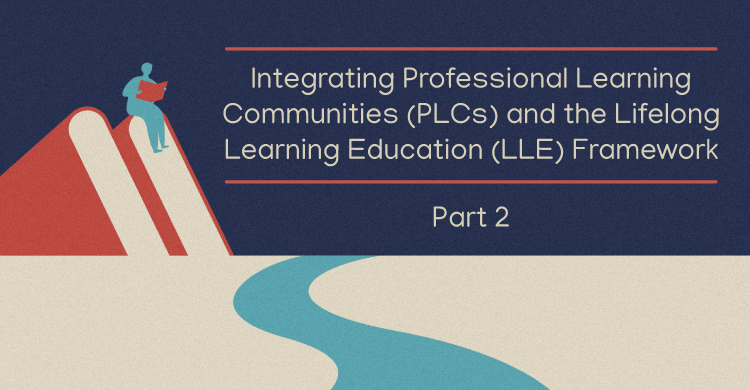As our high school faculty gets ready to return to school next month, I am considering the time we’ll spend together during our teacher preparation days. I’ll have an opportunity to lead us in some professional development as a Professional Learning Community, and so–because we are about learning–I have decided to give a formative assessment (via Google Form) of our school’s PLC team leaders before we convene. I was hesitant to try this; after all, it would be comfortable for me to plan every second of the PD regarding my vision of what the staff needs to know. But then again, our teachers probably would not learn too much from it. If I’m willing to experience a bit of discomfort, however, and open myself up to being flexible to what the teachers need and want to learn, the research shows me that the time spent together will be much more meaningful.
To that end, I will send the Google Form to the team leaders during the week before the Monday we will begin. After I collect their responses, I will be able to group the teams in more relevant settings for learning and will use selections from the Solution Tree Global PD suite of PD videos to help each group’s purpose in shaping the beginning of the year; I’d rather have Rick and Becky Dufour, Dylan Wiliam, Kenneth Williams, and others “speak” to our teams than just about anyone else in the world. (If you have not yet taken the time to explore the Solution Tree Global PD resources or are still considering their purchase for your school or district, take it from this 20-year veteran who has seen it all: Global PD is a wonderful, rich, and important tool to direct and continue the development of any Professional Learning Community. In a nutshell, the precision of the selections is what differentiates this resource and makes it valuable to me. I can select videos on hyper-focused, hyper-relevant topics that help teachers translate the learning directly into the classroom. I used Global PD videos in several staff development meetings last year, and I plan on using them much more liberally and often in 2015-2016.)
As I wrote the descriptors (below) for the teams’ formative assessment, I wanted to achieve two purposes. I wanted to give our PLC team leaders a way to consider their team on a broader landscape of PLC development, and I wanted to identify for the staff what is possible regarding our commitment to collaboration. So, this survey is a form of professional development, too, allowing teams to see the playing field that they are on while allowing them to consider where they would like to be as they forge ahead. Additionally, as I have opportunities to work with department chairs during the first weeks of school, I will return to this formative assessment and will suggest that teams consider the descriptors (in the next level up, perhaps) for their team norms and for their SMART Goals.
Here are the descriptors for the formative assessment of our teams’ self-determined status (again–which I will send on a Google Form before we convene). I expect some of our teams to identify at Level 1, the majority of our teams to select Level 2, and a couple of teams to feel comfortable at Level 3.
Level 3 proficiency: Our team has decided that we are better teachers when we collaborate, and all of us practice this philosophy every day. Assessment of student learning data is the gear which drives all other decisions in our team. Our weekly meetings have a tone and spirit of collaboration and “How do you do it? What can I learn from you? How can I get better?” rather than one of disagreement and “This is how I do it when I do it–please use my idea if you like, but I’m not changing.” Wednesday morning meetings are simply a more formal part of our full-time collaboration, and we use at least some of our time on Wednesdays each week to look at hard data and make flexible decisions based on what our students are learning. We are open to using third-party-designed, standards-based assessments such as PARCC, SmarterBalanced, MAP, STAR Reading, Stanford Achievement Tests, and others to gauge our students’ standards-based progress in our classrooms. We are already or are considering watching each other teach during our off hours to see how we can make our own lessons better. We understand that data study is never punitive for the teacher and cannot influence any kind of administratively-driven teacher evaluation, and we know that that the discussion of our assessment data is necessary for us help students learn more in our classrooms because it informs our decisions (rather than the other way around). We rely upon each other’s strengths to help all of our students learn, regardless of whose classroom the student happens to be in. We feel that we will never achieve perfection as a collaborative group but that we are constantly working to get better and learn from each other in order to help all of our students learn.
Level 2 proficiency: Our team collaborates on Wednesdays and at other times during the week (formally or informally), too. We give common assessments, and all team members participate. Also, we have a shared vision of our course that is based on an articulated curriculum (i.e. scope and sequence). We are not yet regularly using data from the common assessments to drive our meetings on Wednesdays, however, and instead, we usually discuss what to teach, “what’s coming up next,” and/or rubrics for assessment.
Level 1 proficiency: (If any of these descriptors fit, please choose this option.) Our PLC team is just beginning this year, OR our team meets but does not collaborate much because of our unique disciplines and/or classroom approaches, OR our team does not discuss common formative or summative assessment data yet, OR attendance at our meetings on Wednesdays is somewhat optional (and this can take many forms, such as one person ‘putting in the time’ during other times during the week), OR our meetings are not productive because they have been marked for a considerable length of time by discord and non-collaborative decisions by team members with strong beliefs and opinions, OR we have tried and tried to do things collaboratively, but our collaboration is still somewhat superficial and forced, OR some team members still basically do their own thing in the classroom because of their strong beliefs about their approach in the classroom.
[author_bio id=”188″]






